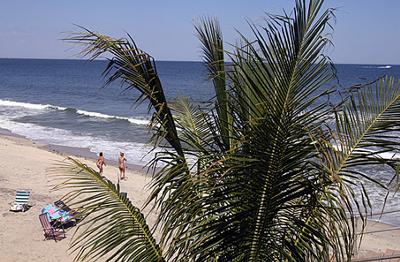global ocean warming
by Betty D
(Hilton Head, US)
This global ocean warming issue has been bothering me. I have been doing amateur weather reporting for WSAV-TV in Savannah, Georgia for three years. One year I noticed our ocean temps were already 86 by early July and that seemed very unusual for so early in the summer.
I tried finding out if that was an anomaly but so far I can't find anyone in NOAA, NODC, NESDIS or NWS with that answer, When I get to certain sites my computer warns me not to download those files so I'm wondering if you can answer my query: Were the high ocean temps off South Carolina highly unusual or not?Are we in Hot Water?
Thanks so much for your time,Barry's Response - Betty:
Seems strange, that you would not be able to get the help you need from the seemingly credible organizations you listed.
I Googled "historical atlantic water temperatures" (without quotes), and this was the first result.
https://www.epa.gov/climate-indicators/climate-change-indicators-sea-surface-temperature
It gives tables of temperatures by month for various locales including Savannah Beach.
I hope this Helps
Try varying your search phrase or engine and see if you get anything more helpful.If the temperature was higher than normal, would you also say that the hurricane season was more active than usual? I thought so, but you might know better. Anyway, there is a global ocean warming connection, as you probably know.
You might also wonder if the projected changes in sea level will have any effect on hurricane. Probably not, but who knows?
Ocean temperatures can change from year to year for a number of reasons, including:
- In the Pacific Ocean, there are two climate patterns called El Niño and La Niña. During an El Niño event, ocean temperatures in the eastern Pacific can be warmer than usual, while during a La Niña event, they can be cooler.
- Changes in atmospheric and oceanic circulation patterns can also affect ocean temperatures. Changes in ocean currents, for instance, can change heat distribution around the world.
- Ocean temperatures are also affected by solar radiation reaching the surface. Periods of increased solar activity can warm the ocean, while periods of decreased solar activity can cool it.
El Niño doesn't happen in the Atlantic Ocean. Climate patterns are affected by El Niño and La Niña events in the Pacific Ocean, where warm and cold water distributions change.
Despite that, the Atlantic Ocean has its own climate oscillations that can affect the weather. The Atlantic Multidecadal Oscillation (AMO) is a natural cycle of ocean temperature variations over several decades. It can cause more frequent and intense hurricanes as well as changes in temperature and rainfall patterns in Europe, Africa, and North America during the positive phase of the AMO. During the negative phase of the AMO, the North Atlantic is cooler than average, which can have the opposite effect.
Ocean currents are affected by salt concentrations, also known as salinity. Along with temperature and pressure, salinity determines the density of seawater. Denser water sinks to the bottom of the ocean and drives ocean currents because it's denser. Variations in ocean temperature near Georgia can certainly be influenced by changes. Salinity changes can affect ocean currents, which can affect the distribution of heat around the world.
Atlantic Meridional Overturning Circulation (AMOC)
is one of the most important ocean currents driven by salinity differences. Ocean currents circulate warm water from the tropics to the North Atlantic, where it cools and sinks to form dense water masses that flow back southward. This dense water mass sinks primarily because of differences in salinity, with higher salinity in the North Atlantic causing it to be denser.Salinity changes can affect AMOC strength and stability, as well as other ocean currents. The melting of ice caps or more rain can add fresh water to the ocean, reducing salinity and making surface waters less likely to sink. It can slow down the AMOC and change the weather around it. On the other hand, salinity increases can strengthen the AMOC and make climate patterns worse.
Comments for global ocean warming
|
||
|
||
|
||
|
||
|
||
|
||
Do you have concerns about air pollution in your area??
Perhaps modelling air pollution will provide the answers to your question.
That is what I do on a full-time basis. Find out if it is necessary for your project.
Have your Say...
on the StuffintheAir facebook page
Other topics listed in these guides:
The Stuff-in-the-Air Site Map
And,
Thank you to my research and writing assistants, ChatGPT and WordTune, as well as Wombo and others for the images.
OpenAI's large-scale language generation model (and others provided by Google and Meta), helped generate this text. As soon as draft language is generated, the author reviews, edits, and revises it to their own liking and is responsible for the content.




